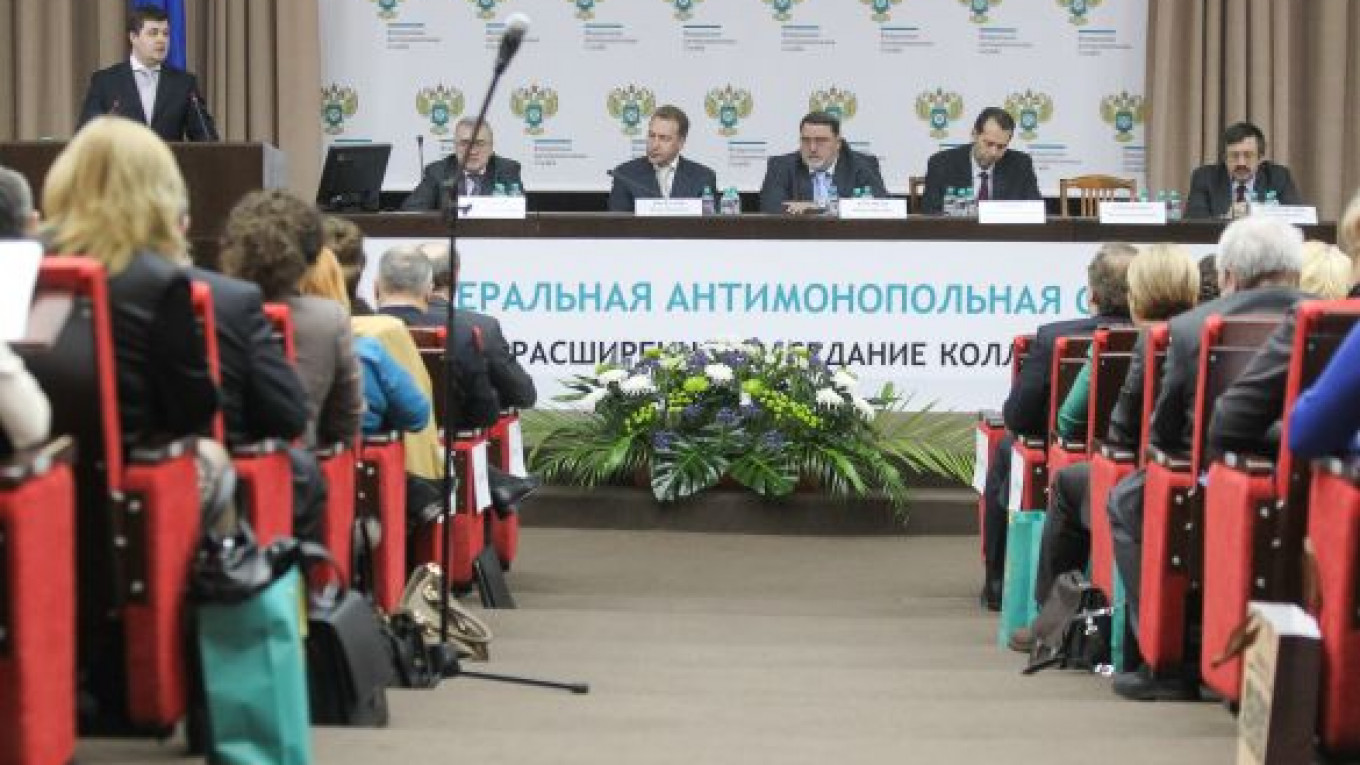When it comes to choosing a Russian or international law firm, the issue is much deeper than language. Industry insiders say a dozen Russian law firms are fully multilingual, in languages like German as well as English. Many more have multilingual specialists so the difference rather comes down to areas of specialization.
International law firms are stronger in the capital markets, where contracts may be concluded under foreign jurisdictions such as U.K. company law. But for regulatory issues, such as communication with Russian authorities, tax issues and criminal laws, Russian law firms can offer some advantages. Senior managers should not forget that they have criminal liability for decisions.
Historic claims on land plots are a crucial issue when buying and selling real estate, and sometimes there is the need to assess criminal risks or tax issues associated with real estate.
When it comes to regulatory issues like licensing, Russian law firms employ experts who have worked for state bodies and who understand the bureaucratic process from the inside. While international law firms can win regulatory clearance for deals, in terms of longer disputes with the Federal Anti-Monopoly Service it is Russian firms that dominate.
Dimitry Afanasiev, chairman of Egorov Puginsky Afanasiev & Partners, says you can weigh the advantages of a Russian versus international law firm in almost any area of law practice. "If English law applies then English and American law firms are likely to have a competitive advantage. English law is typically applied to large merger and acquisition deals, to large capital markets transactions and or credit deals," he said. "Everything else is pretty much an area where Russian law firms can compete."
Russian law is generally new in a historical context, Afanasiev says, and although it formally does not have a case law system, precedent matters.
"If you look at the case law informally, the judges look for some precedent from the higher courts even if officially we don't have a case law system. So you have to be highly in tune with the system to understand how the court is likely to apply this probably new Russian law that you are facing, and this is what some Russian law firms are really good at because they have people who have worked for the government who really are doing this on a daily basis."
Some Russian law firms provide excellent service, acknowledges Delphine Nougayrede, a partner at DLA Piper. "International law firms, however, have the advantage of offering clients integrated international networks, as well as quality controls and risk management procedures that are embedded in the way they operate, including professional indemnity insurance. I would consider that international law firms are still in a better position, generally, to deliver consistent and predictable quality of service according to the necessary standards."
PwC legal associates Vladimir Krupin and Artur Oganesyan also highlighted the advantage of a wide network of offices worldwide, especially in the case of cross-border transactions. They agreed that it was not typical for the international firms in Russia to provide services relating to criminal law in Russia.
Quality is no longer a major deciding factor between Russian and international law firms, as every law firm knows that legal services must satisfy international standards, says Yekaterina Kleimenova, marketing director at Pepeliaev Group.
"Many times, Russian law firms offer a higher level of expertise given the fact that many of them take an active part in making amendments to existing legislature. In line with one of the national strategies, government authorities have on several occasions invited experts from leading Russian law firms to participate in various legislative processes"
Very often, of course, international law firms are using Russian-trained lawyers while many Russian law firms are integrated with international law associations, such as ABA, IBA, TerraLex and Taxand, exchanging information and allowing Russian laws firms to represent their clients' interests around the globe.
Russia's evolving antitrust laws are a key concern for companies, and Raisa Alexakhina, head of legal services at Deloitte CIS, did not see advantages or disadvantages in working with Russian law firms on this issue. "Knowledge of the local Russian antitrust clearance procedures is essential for both Russian and international professional service companies, however, international companies have a wide service network and are able to provide their clients with other services, especially for cross-border transactions.
"Today's multinational organizations need legal advisors who can assist them with both day-to-day activities as well as corporate life events, and who can serve them well in many jurisdictions as one team, addressing not only legal, but also tax, business consulting and financial advisory services, efficiently coordinated at the level of the client's head office."
Contact the author at m.gay@imedia.ru
A Message from The Moscow Times:
Dear readers,
We are facing unprecedented challenges. Russia's Prosecutor General's Office has designated The Moscow Times as an "undesirable" organization, criminalizing our work and putting our staff at risk of prosecution. This follows our earlier unjust labeling as a "foreign agent."
These actions are direct attempts to silence independent journalism in Russia. The authorities claim our work "discredits the decisions of the Russian leadership." We see things differently: we strive to provide accurate, unbiased reporting on Russia.
We, the journalists of The Moscow Times, refuse to be silenced. But to continue our work, we need your help.
Your support, no matter how small, makes a world of difference. If you can, please support us monthly starting from just $2. It's quick to set up, and every contribution makes a significant impact.
By supporting The Moscow Times, you're defending open, independent journalism in the face of repression. Thank you for standing with us.
Remind me later.






